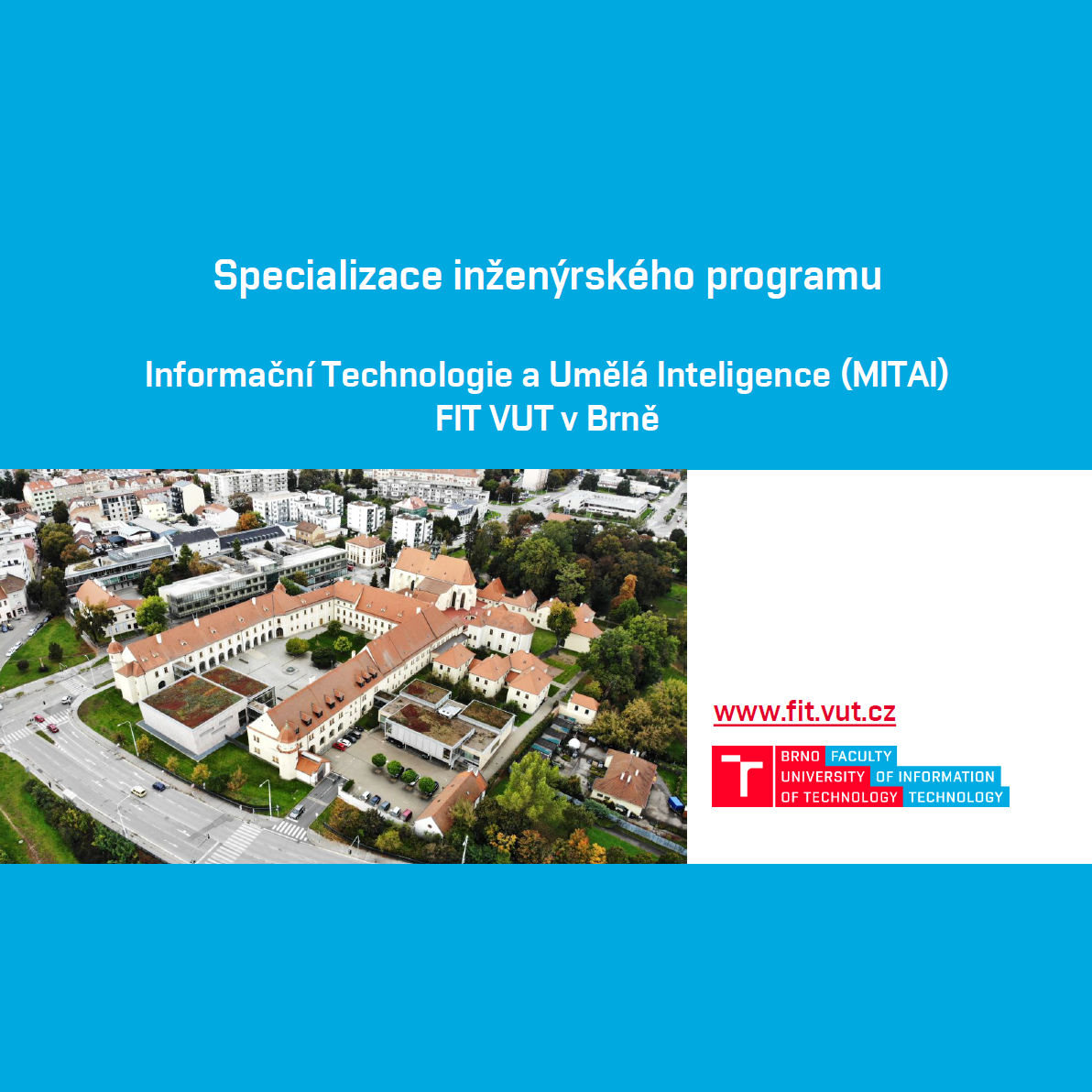By studying Intelligent Systems, you will become familiar with the technologies and procedures used to develop these systems. You get good theoretical knowledge (such as neural networks, fuzzy control, optimization and chaos theory) and practical skills to help you design such systems.
1st Year
The common basis of the programme
The common core of the program consists of courses that will give you the knowledge important for all IT engineers:
- Computation Systems Architectures will teach you how to think about how your code will run on modern computing platforms, how to think about programming in a way that makes the most efficient use of resources, i.e., that your application makes the best use of the power of modern platforms, makes efficient use of system memory resources, and is also efficient in terms of energy consumed.
- Functional and Logic Programming will teach you that although classical imperative programming is a very widely used paradigm and is very close to machine-level implementation, there are other approaches that will give you a new perspective on some key problems and help you get novel and often more efficient solutions to them.
- Modern Trends in Informatics (in English) you need to know to see where the field is going and what to expect in practice in a few years.
- Parallel and Distributed Algorithms is a course that will show you the patterns, limits, and pitfalls of parallel and distributed algorithmic solutions and the associated synchronization mechanisms, without which you will hardly succeed in solving many of the more complex problems.
- Statistics and probability is the right hand of every engineer to process numerical results of experiments or data obtained while running your application, analyze them and learn from them to make further decisions is almost his daily bread.
- Theoretical Computer Science shows the limits of computer science capabilities through formal languages and mathematical models of computation. This is the only way to understand whether your problem is even solvable and, if so, with what resources and means to prove it.
- Data Storage and Preparation, especially big data, and extracting knowledge from it is a valuable art to any computer scientist. It is a key aspect that strongly influences the effectiveness of many solutions and applications.
- Artificial Intelligence and Machine Learning is a course where you will learn how to teach computers to understand our world and make them solve problems that are easy for humans but difficult for an algorithmic machine to handle.
They will pass on all their knowledge and hold you in difficult moments
Doc. Ing.
Zbořil František V.
CSc.
He has been dealing with artificial intelligence for more than 30 years and he is a pioneer of this discipline at FIT. Currently he teaches the Fundamentals of Artificial Intelligence, Soft Computing and Intelligent Systems courses. He is the guarantor of the field/specialization Intelligent Systems and he leads the research group of the same name.
Doc. Ing.
Janoušek Vladimír
Ph.D.
V. Janoušek teaches the course Intelligent Systems. He is the author of the concept of object-oriented Petri nets and PNtalk and several other tools that utilize formal models in the development of adaptive and reconfigurable systems. His hobbies include DIY realization of smart home control, HiFi audio and music.
Ing.
Kočí Radek
Ph.D.
His research focuses on the application of formal models and simulations in software engineering. He teaches courses in software engineering, object-oriented programming and artificial intelligence. He is the author or co-author of tools for modeling and simulation of technological processes. He is involved in a project for creation of genealogical database with uncertainty.
Ing.
Rozman Jaroslav
Ph.D.
He teaches course Robotics and numerical laboratories in Fundamentals of artificial intelligence and Fundamentals of programming. His professional interests are robotics, artificial intelligence, neural networks and computer vision. Currently his main research topic is data mining from genealogical resources. Genealogy together with genetic genealogy and history are also his hobbies.
Doc. Ing.
Zbořil František
Ph.D.
His research is focused on implementation and development of intelligent distributed and multiagent systems. He made some systems that combines multiagent paradigmas with PetriNets and he also did some research in application of agent programming in wireless sensor networks. Recently he also works on models for genealogy and social structures.
What are we talking about?
-
(TZ, Brno, October 20, 2025) The European Commission has announced the results of the EuroHPC European supercomputing initiative call for proposals. Among the successful applicants is the Czech Republic, specifically a consortium of six partners including the Brno University of Technology. …
-
Complete program for this year's Researchers' Night on the theme of WEALTH
Science is a key source of our prosperity and wealth. Come and see for yourself at our faculty, where centuries of history meet cutting-edge technological research. We invite you to join us for Researchers' Night. …
Come to FIT!
Other Master
Specializations
-
Application Development
-
Bioinformatics and Biocomputing
-
Computer Graphics and Interaction
-
Computer Networks
-
Computer Vision
-
Cyberphysical Systems
-
Cybersecurity
-
Embedded Systems
-
High Performance Computing
-
Information Systems and Databases
-
Intelligent Devices
-
Intelligent Systems
-
Machine Learning
-
Mathematical Methods
-
Software Engineering
-
Software Verification and Testing
-
Sound, Speech and Natural Language Processing
